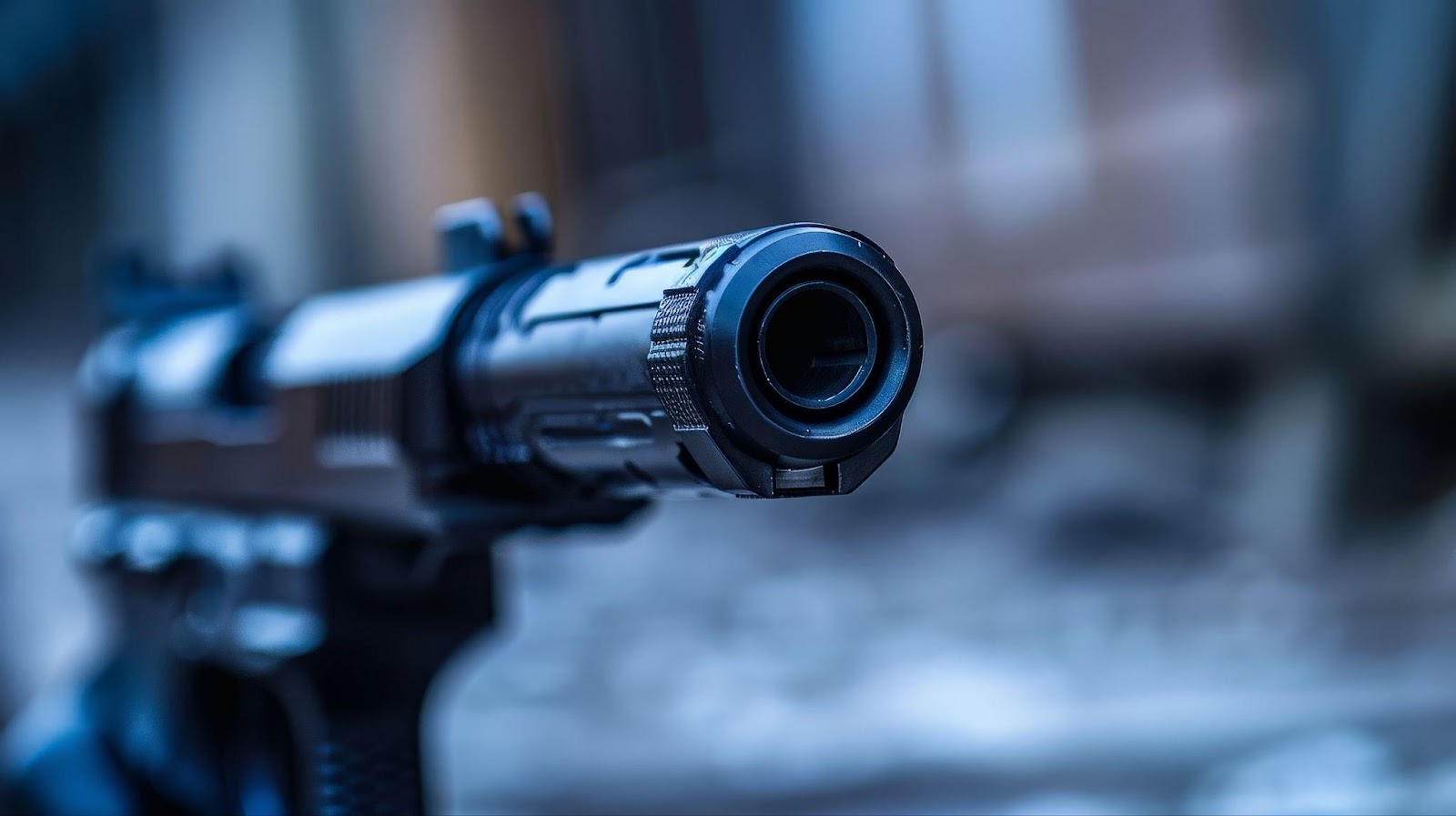
In the wake of last Saturday night’s devastating mass shooting that left two dead and twelve injured in downtown Montgomery, Alabama Governor Kay Ivey announced Monday that the state would take unprecedented steps to address public safety in the capital city.
The governor’s forceful response, which includes extending state trooper patrols and seeking additional legislative resources, has ignited a fierce debate about gun laws, local control, and the best path forward for preventing future tragedies.
State Response to Urban Violence
Governor Ivey’s Monday morning statement on October 6 pulled no punches in addressing the weekend’s violence.
“Alabamians lost their lives at the hands of thugs in downtown Montgomery this weekend,” the Republican governor declared, outlining immediate actions to bolster security in the historic downtown district.
The state’s intervention includes several key measures:
- Capitol troopers will extend their patrol zones beyond state property to cover key downtown areas.
- Additional state law enforcement resources will be requested from Alabama lawmakers.
- All available state assets are being evaluated for potential deployment.
- Existing multi-agency task forces will be reassessed and potentially expanded.
These measures represent a significant shift in how the state approaches public safety in Montgomery, traditionally a matter left primarily to local authorities.
The governor’s statement that “ALL options remain on the table” signals a willingness to explore extraordinary measures in response to the escalating violence.
The Shooting’s Aftermath and Investigation
The deadly incident occurred at approximately 11:31 p.m. on Saturday in Montgomery’s bustling downtown entertainment district, less than a mile from the Alabama Capitol.
The area, typically filled with patrons enjoying the city’s nightlife, became a warzone when what police believe was a targeted attack spiraled into chaos.
Montgomery Police Chief James Graboys revealed crucial details about the shooting’s progression. According to investigators, one of the 14 victims was specifically targeted, leading to initial gunfire.
The situation rapidly deteriorated when multiple individuals drew their own weapons and began firing in the crowded area.
“As you can imagine, that could be a very chaotic situation,” Graboys explained, highlighting the complexity investigators face in untangling who fired at whom. The fact that seven of the 14 victims were under age 20 adds another tragic dimension to an already heartbreaking incident.

Gun Laws at the Center of Debate
The shooting has reignited contentious debates about Alabama’s gun laws, with Montgomery Mayor Steven L. Reed directly challenging the state’s firearms policies in his response to Governor Ivey.
Reed argued that lax state gun laws have “taken critical tools away from police officers,” pointing specifically to Alabama’s 2023 decision to eliminate permit requirements for concealed carry.
The policy clash reveals deeper tensions between state and local authorities:
- Alabama eliminated concealed carry permit requirements in 2023.
- Montgomery attempted to require photo ID for concealed carriers in 2024.
- The city abandoned the effort amid threats of losing state funding.
- Five police officers were nearby during the shooting, with one within 50 feet.
Mayor Reed’s statement that “real safety requires more than additional troopers or task forces — it requires the courage to confront the culture of easy access to guns” directly challenges the state’s approach to firearm regulation and public safety.

Historical Context and Montgomery’s Challenges
Downtown Montgomery holds special significance as both Alabama’s capital and a crucible of American civil rights history.
The shooting occurred near landmarks honoring Rosa Parks and other civil rights pioneers, adding poignancy to the violence that erupted in these historically significant streets.
Governor Ivey acknowledged Montgomery’s unique position, calling it “a special place filled with history, great potential, and a strong community of people.”
However, her blunt assessment that “you can’t fix stupid” and that current measures have proven insufficient underscores the frustration felt by officials at all levels of government.
The state’s previous efforts to address downtown crime through multi-agency task forces have apparently fallen short of preventing such incidents, prompting this escalated response.
Legal Implications for Victims and Businesses
The mass shooting raises numerous legal questions that extend beyond criminal prosecutions. As of Monday morning, no arrests had been announced, but the incident’s aftermath will likely involve complex civil litigation and policy changes affecting downtown businesses and event venues.
Key legal considerations emerging from this tragedy include:
- Potential civil lawsuits by victims and their families against various parties.
- Premises liability questions for businesses in the entertainment district.
- Insurance claims and coverage disputes for property damage and business interruption.
- Constitutional challenges to any new security measures or restrictions.
The presence of multiple armed individuals who engaged in the shooting complicates both criminal investigations and civil liability determinations.
Establishing who bears responsibility—legally and financially—for the harm caused will require careful analysis of surveillance footage, witness testimony, and ballistics evidence.
Moving Forward: Balancing Security and Freedom
The governor’s promise to explore “all available state assets” and keep “ALL options on the table” suggests potentially dramatic changes to how Montgomery’s downtown operates.
These could range from increased surveillance and checkpoints to restrictions on large gatherings or changes to business operating hours.
For Montgomery residents and business owners, the challenge lies in maintaining the vibrancy and accessibility that make downtown attractive while implementing security measures sufficient to prevent future tragedies.
The debate over gun laws adds another layer of complexity, as state and local officials clearly disagree on whether the solution lies in more enforcement or different laws.
The shooting’s impact extends beyond immediate safety concerns to questions about Montgomery’s economic vitality, its ability to host major events, and the fundamental balance between security and the freedoms Alabamians cherish.
Let Justice Roll
When gun violence shatters communities and lives, victims face not only physical and emotional recovery but also complex legal challenges. Understanding your rights and options in the aftermath of such tragedies is essential for securing justice and compensation.
Our experienced personal injury attorneys here at Baxley Maniscalco understand the devastating impact of violent crime on individuals and families.
We help victims navigate the intricate legal landscape following shootings and other violent incidents, including pursuing civil lawsuits against responsible parties, exploring premises liability claims against property owners, and securing compensation for medical expenses, lost wages, and trauma-related conditions.
If you or a loved one has been affected by gun violence or other violent crime in Alabama, contact Baxley Maniscalco at (256) 770-7232 for a confidential consultation about your legal rights and path to recovery.
Can't find what you're looking for? Search our site below.










